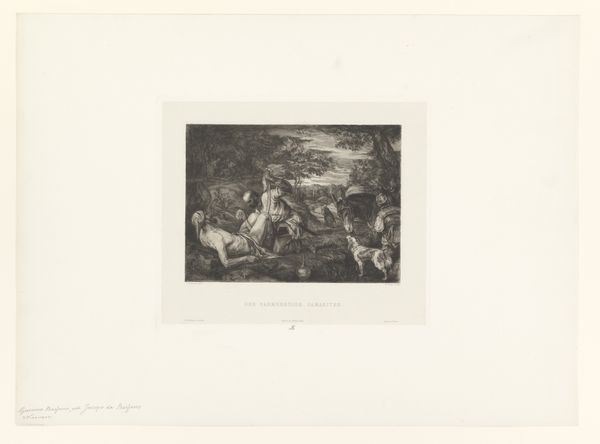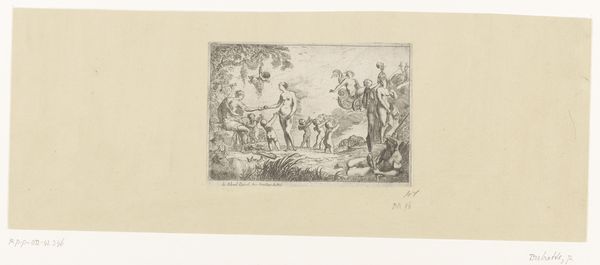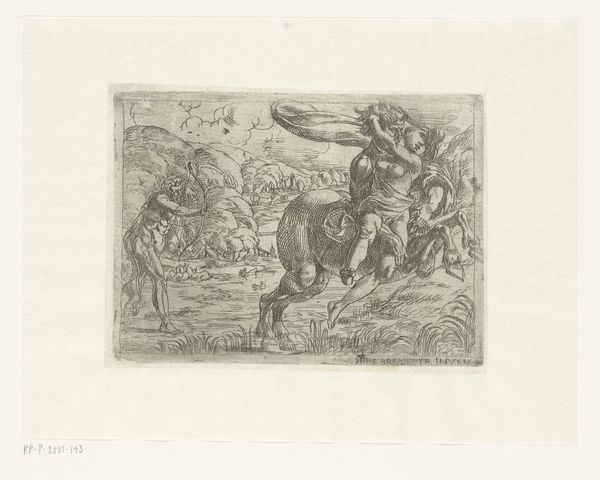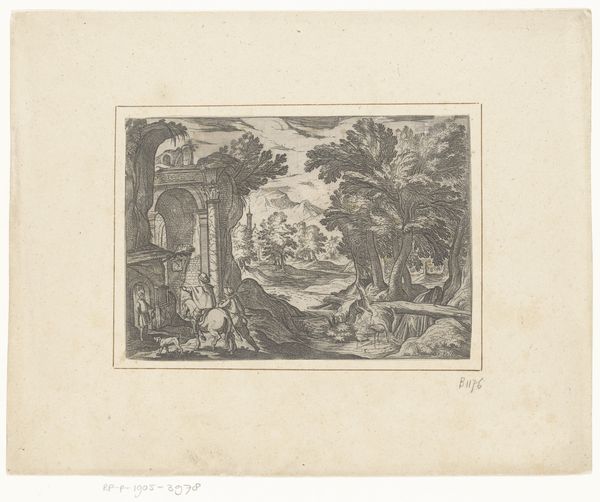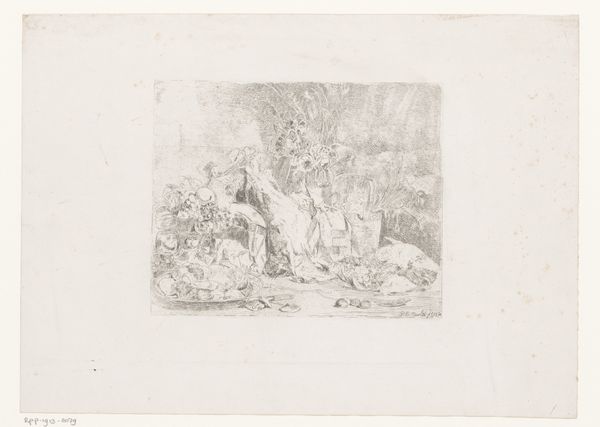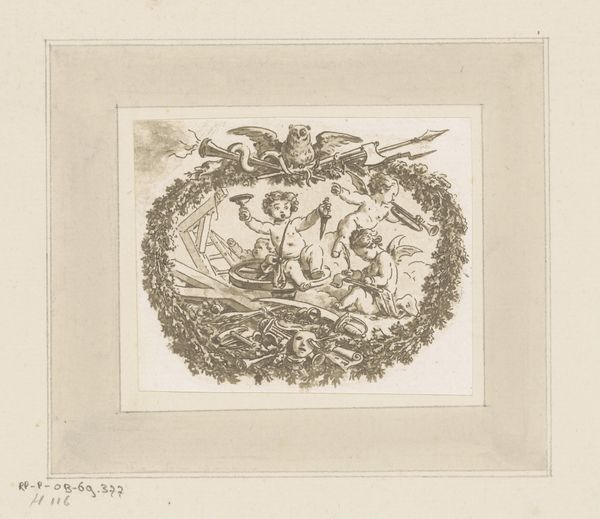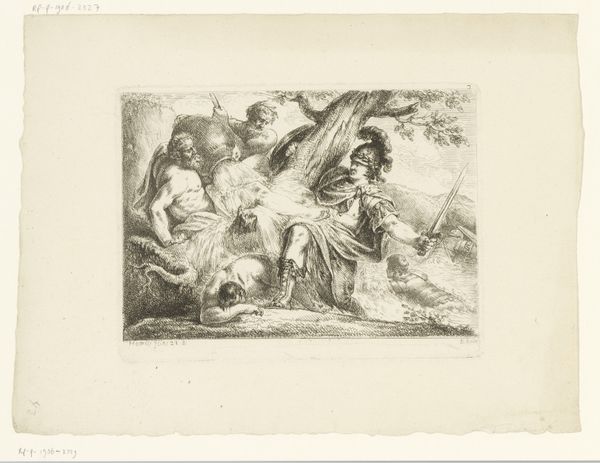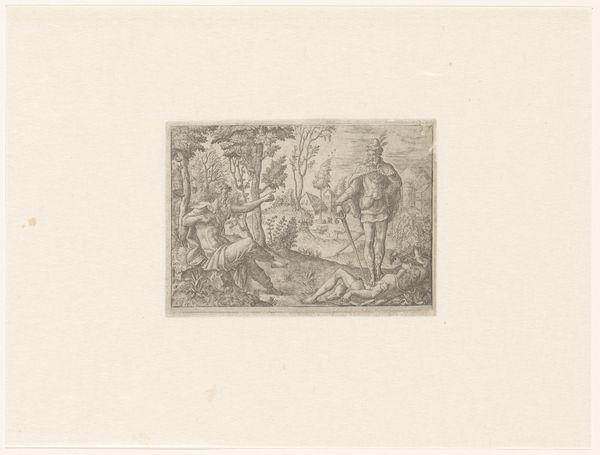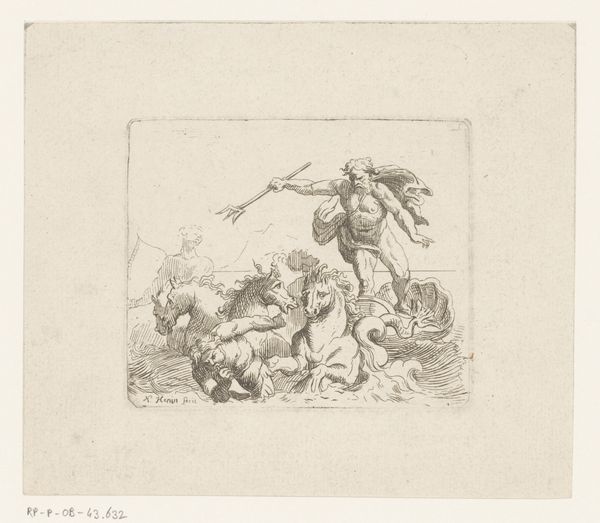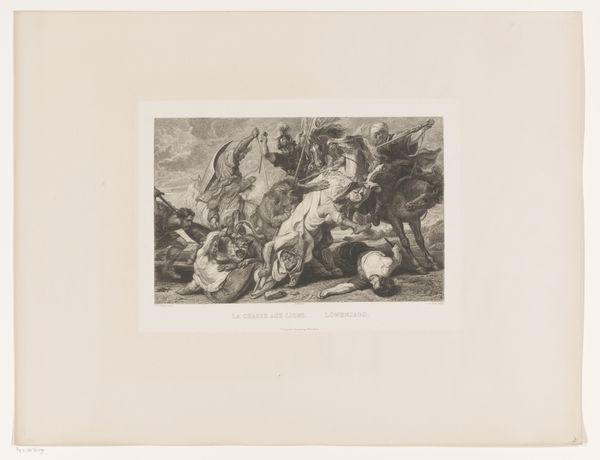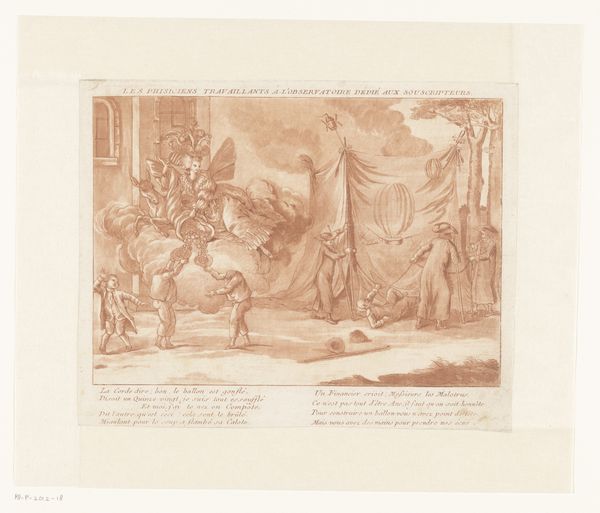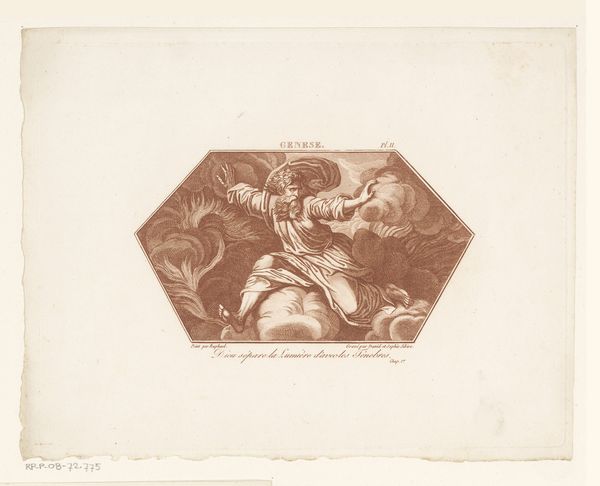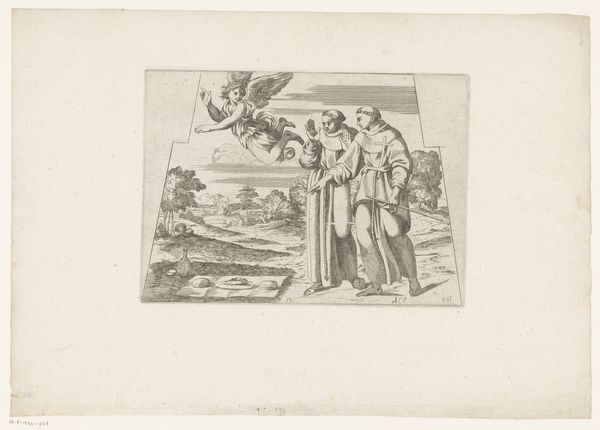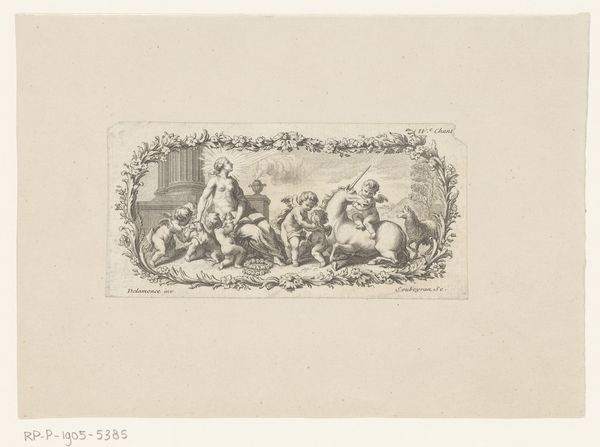
Dimensions: height 112 mm, width 135 mm
Copyright: Rijks Museum: Open Domain
This delicate engraving, Allegory of Poetry, was created by Reinier Vinkeles around the turn of the 19th century. It's made using a technique called etching, where lines are incised into a metal plate with acid, then filled with ink and printed. Vinkeles was a master of this craft, and you can see his skill in the fine details of the figures and the lush landscape. But beyond the image itself, the etching process speaks volumes. It was a key method for disseminating information and artistic ideas during the Enlightenment. Etchings like this made art accessible to a wider audience, a kind of democratization of imagery. The labor involved in creating such a detailed print was considerable. From preparing the plate to the painstaking work of etching and printing, it represents a significant investment of time and skill. Considering this, the print is not just a pretty picture. It’s an embodiment of the era’s values: reason, progress, and the power of knowledge. The very materiality of the etching, and the process by which it was made, are integral to its meaning.
Comments
No comments
Be the first to comment and join the conversation on the ultimate creative platform.
